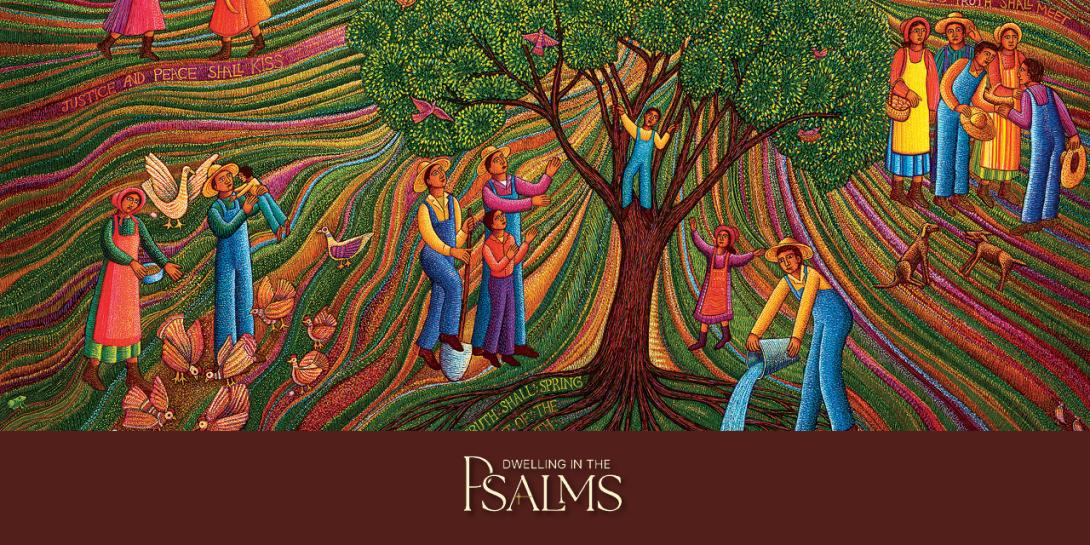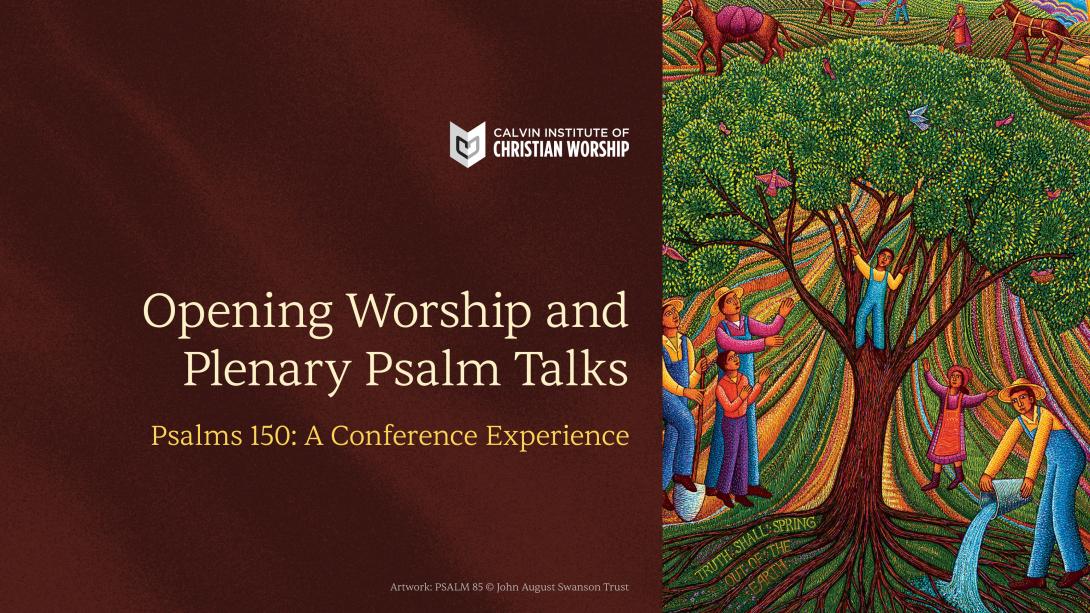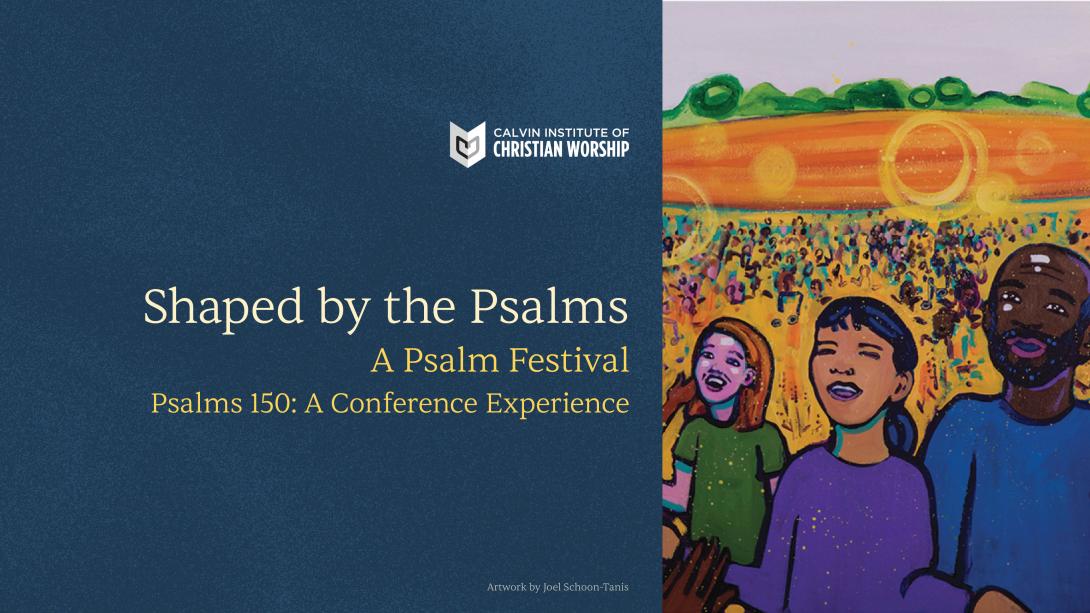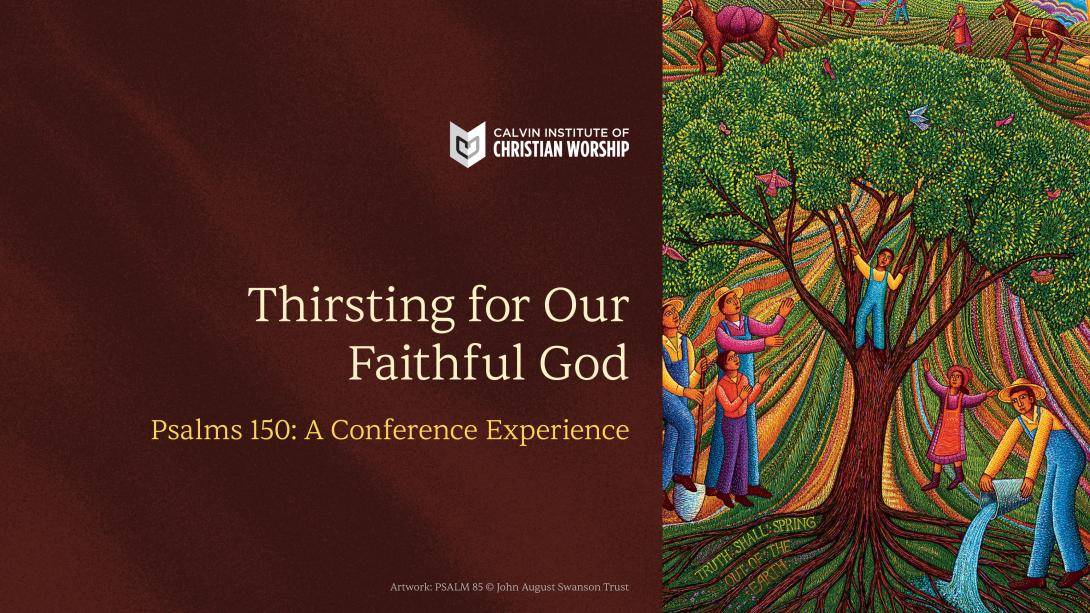Summary
This session focused on how autistic individuals have been excluded from full participation in our faith communities and why the church’s mission is hindered by that exclusion. It ended with a discussion of concrete steps a church can take to become more welcoming and supportive of those with autism.
Listen Online
Transcript
|
Kevin Timpe
00:00:00
|
00:00:00 |
I'm Kevin Tempe. I teach in the philosophy department here at Calvin. And one of the things that I've been glad for the last few years is the support of the Calvin Center for Christian Worship. In addition to having a day job as a philosopher, I'm a disability advocate for reasons that might become apparent as we go. And I want to talk today about how our different communities and how our wider culture, but especially the Christian community that we know as the church, has been and unfortunately still often is problematic with how we treat disabled people. Just as the church is sometimes unwelcoming of people that are different from us in other sorts of ways, so too it's often unwelcoming of disabled folks. This is, of course, going to be a very broad topic. You might think you could write an entire book or numerous books on the topic. And I'm not going to try to do everything in an hour. So today I'm just going to focus in on autism, though some of what I want to say about autism will also translate to be relevant for other disabilities as well. |
|
Kevin Timpe
00:01:22
|
00:01:22 |
Now, there might be issues that come up for other disabilities that don't necessarily come up for autism. There are some disabilities that have complex medical needs, for instance. And autism diagnosis by itself usually doesn't come for those. And so the ways in which churches need to be accommodating of medical complex individuals might be slightly different. But I think by talking about autism in the church, it will help us get a sense of how to think about disability more broadly in the church. In fact, much of what I want to say about how the church sometimes fails in its mission to be the church isn't just true regarding autism or even disability more broadly. I actually think it has a lot to say about the church's failings with respect to some of these other marginalized groups. How the church has often treated, at least in the US. I've lived in the UK for one year, but it's Oxford. And Oxford, UK is not exactly like most places in the world. So almost everything I'm going to say today is from a US context, and I'm well aware that different cultures, different countries, different nationalities, different parts of the world have very different responses to some of these issues. So take all of this as having a fairly limited focus. But if you want to think about how some of the things I say today also reflect to, say, racial divisions in the church, or sexuality divisions in the church, political divisions in the church, class divisions in the church, that's homework for your drive home. Not tomorrow, I've got other sessions. OK. |
|
Kevin Timpe
00:03:53
|
00:03:53 |
And then two quick disclaimers before I hop into stuff. The range autism manifests is really, really broad. You've probably all heard the phrase, the autism spectrum. I actually think that the autism spectrum kind of language is really problematic. It suggests that there's a hierarchy where there are higher functioning, which often translates as less autistic, or more accurately, more able to pass as non-autistic individuals and lower functioning autistic individuals, or severe autism. But the spectrum language also suggests that how your autism affects you in one part is sort of parallel to how it affects you in other parts of your lives. One person with autism can need substantial assistance, or help, or support in one domain, and not need it in another domain. And so whether or not even a particular autistic individual is high functioning or low functioning, as the dichotomy often goes, will depend on what sort of domain that we're talking about. So I'm not autistic, but I've tried to take very seriously autistic voices in my work in the church and elsewhere. And so a lot of them oppose this idea of autism spectrum. So it might be better to think of autism as a multidimensional matrix, which doesn't get nearly as nice of a graphic, but we shouldn't expect one autistic person's experiences to speak for everybody who's autistic any more than we should expect one woman to speak for all women's experiences. |
|
Kevin Timpe
00:05:21
|
00:05:21 |
So let's keep in mind that even with an autism, there's a lot of variety. Second, some of you might have already noticed that I've been using language that some of you have been told not to use. There's a discussion among folks about what gets called person-first language versus identity-first language. And I just got done teaching a class in this very room for the past three weeks. 21 students, 17 of them were either education majors, social work majors, pre-physical therapy, occupational therapy, or speech and audiology majors. And all of them, the first day of class, didn't like how I was using the language because they've been told to use what's called person-first language. Examples of this would be talking about a person with a disability or an adult with autism. And the idea here is so that you're not reducing somebody down to their diagnosis. It's to emphasize the person that's involved. Theologian John Swinton writes, using person-first language puts the focus on the person as opposed to the label. And lots of different disciplines tell you to use person-first language. My guess is if you go into church ministries, you'll almost always see them referred to as, well, usually they're called special needs ministries. Talk about that later. That's problematic. But there will be ministries to children with disabilities or talk about children with disabilities rather than disabled children. Contrast this with identity-first language, such as disabled person or autistic adult. And it's often said that the reason to prefer the first over the second is as a way of not highlighting somebody's disability. But what's interesting is the vast majority of disabled adults in the United States say identity-first language is important to use. Most deaf individuals for whom their deafness isn't just about difficulty hearing, but it's about their linguistic usage, ASL, and their culture. There's a big thing on deaf, capital D, culture. Almost all of them prefer to be called deaf rather than a person with a hearing impairment or hard of hearing. |
|
Kevin Timpe
00:08:34
|
00:08:34 |
Approximately 80% of autistic adults in the United States prefer to be called autistic rather than a person with autism. Jim Sinclair, the autism rights advocate who helped found the Autism Network International, says that, quote, it's only when someone has decided the characteristic being referred to as negative that suddenly people want to separate it from the person, end quote. And my friend and philosopher of disability, Elizabeth Barnes, in her book also advocates for identity-first language. She says, I use disabled people rather than people with disabilities because disabled people mirrors our usage of other terms that pick out minority social groups. For example, this is still a quote from Barnes, we say gay people, not people with gayness. That sound is very strange. It's sometimes suggested, she continues, that we should say people with disabilities because disabled people suggest that disability somehow defines the person. But I simply don't think that's true. Saying that someone is a disabled person doesn't mean that disability defines them any more than saying someone is gay means their sexuality defines who they are either. |
Recent Media Resources
A Soundtrack for the Soul: Singing the Psalms with Wendell Kimbrough
This chapel worship service was led by Wendell Kimbrough at Calvin University as part of the Calvin Institute of Christian Worship’s “Dwelling in the Psalms” year.
Opening Worship with Psalm Talks with Artistic Responses
Worship led by Calvin University Worship Apprentices and mentor Paul Ryan, with Psalm Talks by Amanda Benckhuysen, Jared E. Alcántara, and Cynthia Eriksson, and artistic responses by Dea Jenkins and Joel Schoon-Tanis.
Shaped by the Psalms: A Psalm Festival
Psalm Festival Worship led by Jared Alcántara; Vinroy D. Brown Jr.; Bellwether Arts; Karen Campbell; Calvin University’s Capella choir, directed by Mark Stover; Calvin University’s Gospel Choir, led by Nate Glasper; Celtic Psalms; and Rawn Harbor; with artwork by Joel Schoon-Tanis
A Soundtrack for the Soul: Singing the Psalms with Wendell Kimbrough
This chapel worship service was led by Wendell Kimbrough at Calvin University as part of the Calvin Institute of Christian Worship’s “Dwelling in the Psalms” year.
Opening Worship with Psalm Talks with Artistic Responses
Worship led by Calvin University Worship Apprentices and mentor Paul Ryan, with Psalm Talks by Amanda Benckhuysen, Jared E. Alcántara, and Cynthia Eriksson, and artistic responses by Dea Jenkins and Joel Schoon-Tanis.
Shaped by the Psalms: A Psalm Festival
Psalm Festival Worship led by Jared Alcántara; Vinroy D. Brown Jr.; Bellwether Arts; Karen Campbell; Calvin University’s Capella choir, directed by Mark Stover; Calvin University’s Gospel Choir, led by Nate Glasper; Celtic Psalms; and Rawn Harbor; with artwork by Joel Schoon-Tanis
Thirsting for our Faithful God
Morning Worship led by staff of the Calvin Institute of Christian Worship, with Psalm Talks by Terry M. Wildman and Darlene Wildman, Karen Campbell, and Rawn Harbor, and artistic responses by Dea Jenkins and Joel Schoon-Tanis.





